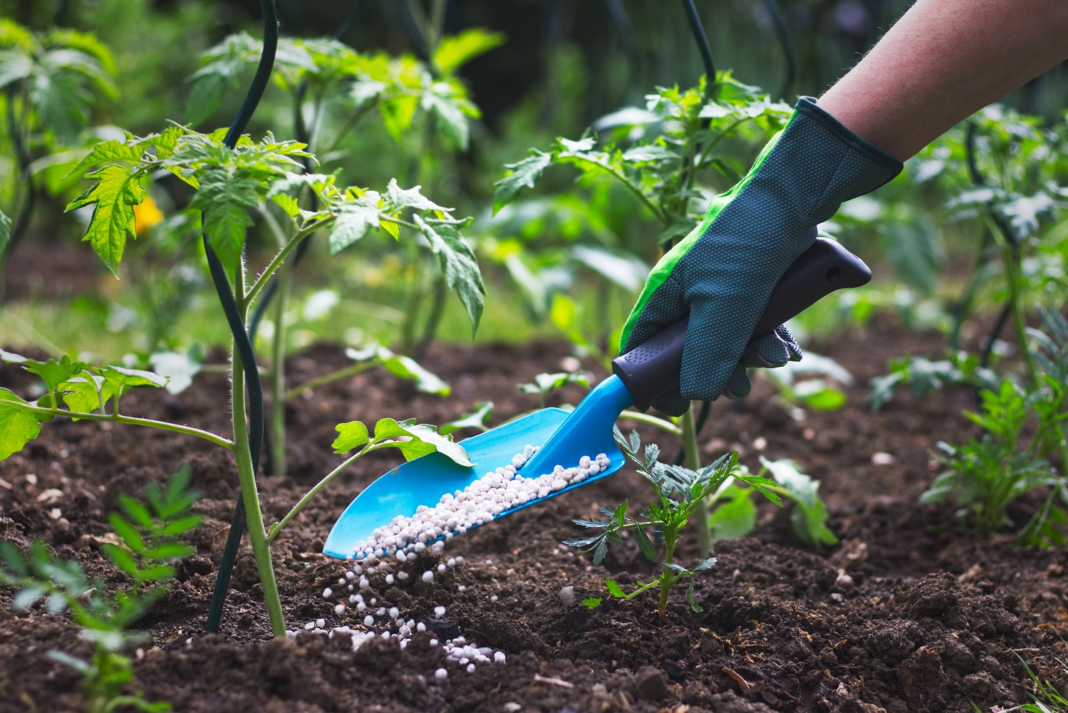Gardening enthusiasts often seek ways to enhance the vitality and health of their gardens. A key element in achieving this is the use of organic plant foods and lawn fertilizers. These natural solutions not only nourish plants but also maintain ecological balance, proving beneficial for both the garden and the environment.
Understanding the Basics of Garden Nutrition
Plants, much like any living organism, require a complex blend of nutrients to thrive, each serving a unique purpose in their growth and development. This is where the role of organic fertilizers becomes pivotal; they provide these essential nutrients in a naturally balanced form that’s not only beneficial for plants but also for the soil and the broader ecosystem.
Organic fertilizers differ significantly from synthetic ones. While synthetic fertilizers offer a quick-fix by delivering high doses of nutrients, they often neglect the long-term health of the soil. In contrast, organic options, rich in natural matter, not only feed the plants but also improve soil structure and its ability to retain water and nutrients. This leads to a healthier garden ecosystem, where plants can access the nutrients they need over a more extended period.
Additionally, micro-nutrients, though required in smaller quantities, are no less important. Elements like iron, magnesium, and calcium are crucial for various plant functions, including chlorophyll production and disease resistance. A well-balanced organic fertilizer ensures that plants receive not just the primary nutrients but also these vital micro-nutrients, leading to robust and healthy growth.
Key Nutrients for Healthy Plants
Essential nutrients like Nitrogen, Phosphorus, and Potassium (NPK) are pivotal for plant health. Nitrogen aids in foliage growth, Phosphorus supports root development, and Potassium ensures overall plant vigor. Besides these, micro-nutrients like iron, magnesium, and calcium play critical roles in the growth and health of plants.
Choosing the Right Organic Plant Food
Selecting the right organic plant food involves considering factors such as the type of plants, soil conditions, and local climate. Organic options offer several advantages, including improved soil structure and enhanced microbial activity, leading to a more sustainable and productive garden.
Organic Solutions for Common Garden Problems
Organic gardening solutions effectively address common problems like nutrient deficiencies, pests, and diseases. By focusing on natural remedies and preventive measures, gardeners can maintain healthy gardens without resorting to harsh chemicals.
The Importance of Organic Lawn Fertilizers
Organic lawn fertilizers play a crucial role in maintaining not just the health of your lawn but also the environmental balance of your garden. Unlike synthetic fertilizers, which can be harsh on the ecosystem and lead to nutrient runoff, organic fertilizers release nutrients at a slower, more natural pace. This gradual release not only provides a steady supply of nutrients to your grass but also ensures that the soil remains healthy and capable of supporting a diverse range of microorganisms.
These fertilizers also contribute significantly to the long-term health of the soil. By improving soil structure and increasing its water retention capacity, they ensure that your lawn remains lush and green throughout the seasons. Moreover, organic fertilizers are safer for pets, children, and local wildlife, reducing the risk of harmful chemical exposure.
The environmental benefits of using organic lawn fertilizers cannot be overstated. They reduce the chemical load on our environment, diminishing the risk of polluting waterways and harming beneficial insects and birds. In essence, by choosing organic lawn fertilizers, gardeners make a conscious decision to support a more sustainable and ecologically responsible gardening practice.
Tips for a Lush, Healthy Lawn
Achieving a lush, healthy lawn with organic fertilizers involves understanding proper application techniques and general lawn maintenance best practices. Regular mowing, watering, and aeration, combined with the use of organic fertilizers, can lead to a vibrant and environmentally friendly lawn.
Implementing a Holistic Garden Care Routine
Adopting a holistic approach to garden care means looking beyond just feeding and watering plants; it involves understanding and nurturing the entire garden ecosystem. This comprehensive method integrates organic fertilizing with other sustainable practices such as composting, mulching, and efficient water management to create a more resilient and productive garden.
At the heart of a holistic garden care routine is the focus on soil health. Regular composting enriches the soil with organic matter, improving its texture and fertility. Mulching helps in retaining moisture, suppressing weeds, and gradually adding nutrients back into the soil as it decomposes. Choosing the right kind of organic mulch, such as straw or wood chips, can significantly enhance the soil’s quality over time.
Water management is another critical aspect of holistic gardening. Implementing drip irrigation or soaker hoses can dramatically reduce water usage while ensuring plants receive the moisture they need. Collecting rainwater in barrels for garden use further conserves resources and reduces dependency on tap water.
Monitoring and maintaining plant health is also vital. Regular inspections for pests and diseases, and using organic methods to address any issues, keeps the garden healthy without the need for harsh chemicals. Encouraging beneficial insects and birds by planting native species or setting up bird feeders can naturally control pest populations.
Lastly, a holistic garden care routine involves continuous learning and adaptation. Keeping a garden journal to track what works and what doesn’t, and adjusting practices accordingly, helps in evolving a more effective and sustainable gardening strategy. Such a routine not only ensures a thriving garden but also fosters a deeper connection between the gardener and the natural world.
The Environmental Benefits of Organic Gardening
Organic gardening offers numerous environmental benefits. It supports local wildlife, promotes biodiversity, and reduces the garden’s carbon footprint. By choosing organic methods, gardeners play a vital role in preserving the natural balance of their surroundings.
Organic plant foods and lawn fertilizers are vital tools for enhancing garden vitality. They offer a sustainable and effective way to nourish plants while contributing positively to the environment. Gardeners looking to embrace these practices can find a wealth of resources and products to help them on their journey to a more vibrant and eco-friendly garden.


